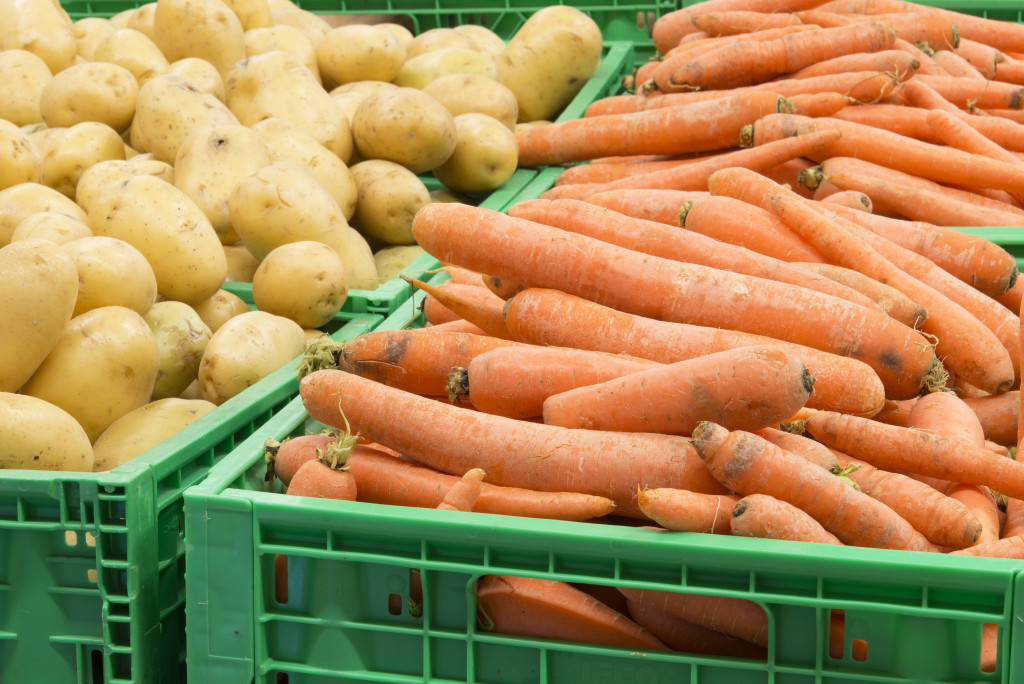Drinking enough water is essential for our body’s physiological processes, which is why symptoms are often quick to manifest when you become dehydrated. The general rule is to drink about 2.7 liters of water a day for women and 3.7 liters for men. However, this can also depend on your age, your level of physical activity, and how much you weigh.
For some, drinking multiple liters of water every day can be challenging to manage. Some people are too busy to keep track of their water intake throughout the day, while others simply do not like drinking water. Whatever the reason may be, constantly turning up short on your water intake can lead to dehydration, which can cause dizziness, fatigue, dry skin, and many other symptoms.
So aside from drinking water, here are other ways you can stay hydrated:
1. Consider IV hydration
IV hydration therapy helps increase your body’s moisture level while injecting certain vitamins, minerals, and antioxidants. There are a lot of hydration therapies available that are formulated for a specific purpose aside from general hydration.
For instance, you can opt for a workout recovery drip that is loaded with BCAAs that help promote muscle building and healing. There are also many types of hangover recovery drips that help your body recuperate after a night of drinking, such as those that include glutathione, an antioxidant beneficial for removing free radicals and improving liver function.
2. Eat moisture-rich food
Aside from drinking water, you can also increase your body’s hydration level by incorporating more moisture-rich food into your diet, such as fruits, vegetables, and legumes. You can even eat more meals that contain a lot of water, such as soups, clear broths, and smoothies.
3. Choose healthier beverages
If you don’t like drinking water because it lacks taste, you may be inclined to drink liquids that have flavor. However, not all drinks are good for you, especially if it’s packed with lots of sugar and caffeine. In fact, sodas, coffee, tea, and other drinks rich in sugar and caffeine can contribute to dehydration because they make you urinate more often.
Instead of sugary juices, sodas, coffee, and tea, try to incorporate healthier alternatives into your diet, such as coconut water, fresh juice, decaf, vitamin water, and low-fat milk.

4. Eat electrolyte-rich food
Aside from moisture-rich food, it also helps to have more electrolyte-rich food in your diet. Electrolytes are essential to proper nerve and muscle function, and they are key to fluid absorption in your body.
Sports drinks are a rich source of electrolytes, but they also often include a lot of sugar and artificial dyes. So, instead of guzzling sports drinks, eat more food rich in electrolytes, such as:
- Spinach
- Potatoes
- Peanuts
- Collard greens
- Coconut water
- Bananas
- Greek yogurt
- Kale
5. Put some flavor in your water
If you don’t like drinking water, why not make it more fun? You can put some flavor in your water with fresh fruits or moisture-rich vegetables. If you want your water to be sweet, you can also add a dash of sugar-free sweetener in your drink or perhaps a splash of fresh fruit juice.
This trick also works well with children who don’t like drinking plain water, especially if you add a drop of food dye to make the water look more exciting.
6. Avoid going outside on hot days
On the days when the weather is sweltering, avoid staying outside for more time than necessary. When your body is hot, it produces sweat to cool off and hydrate your skin. But it gets rid of the water inside your body and increases your risk of dehydration in the process.
With that in mind, stay inside when the weather is too hot outside, especially between 10 A.M. and 4 P.M. when the sun’s rays are at their strongest. If you can’t avoid it, stay in the shade as much as possible to minimize the amount of water you lose. More importantly, be sure to drink plenty of water to replenish your losses once you get the chance.
7. Drink milk
Milk contains sodium and potassium, which can help increase the body’s fluid absorption. Furthermore, it has been found to have a higher hydration index than water, making it a great alternative when you don’t feel like drinking plain water. If you have concerns about the fat content of milk, opt for low-fat alternatives with a minimal amount of added sugar.
Staying hydrated is not all about guzzling tons of water. Whether you have trouble keeping track of how much water you drink or simply do not like drinking water at all, these tips can help you maintain an excellent hydration level and avoid dehydration.
